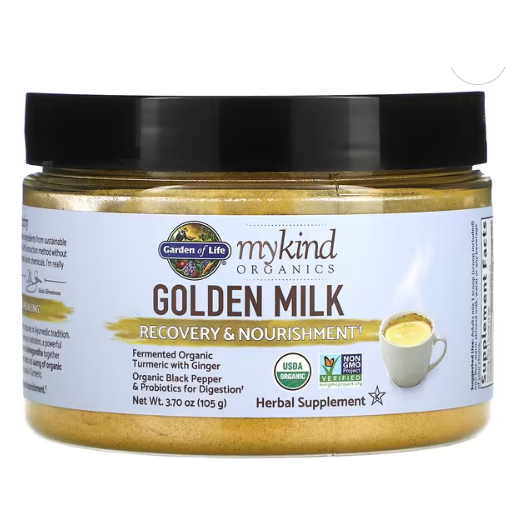Strengthening Your Immune System with PrimeVit: Your Path to Wellness
In today's fast-paced world, maintaining a robust immune system is crucial for overall health and well-being. At PrimeVit, we understand the importance of a strong immune system and are dedicated to providing high-quality supplements designed to support and enhance your body's natural defenses. This article delves into the importance of immune support, how PrimeVit products can help, and tips for maintaining a healthy immune system.
The Importance of Immune Support
The immune system is the body's defense mechanism against infections, illnesses, and diseases. It comprises a complex network of cells, tissues, and organs that work together to protect the body from harmful invaders like bacteria, viruses, and other pathogens. A well-functioning immune system not only helps prevent infections but also plays a crucial role in recovery and overall health maintenance.
Key factors that can weaken the immune system include:
- Poor nutrition
- Lack of sleep
- High stress levels
- Sedentary lifestyle
- Environmental toxins
To counteract these factors, it is essential to adopt a lifestyle that promotes immune health. This includes a balanced diet, regular exercise, adequate sleep, and stress management. Additionally, incorporating immune-supporting supplements can provide an extra layer of defense.
How an Immune Response Works
The immune system needs to be able to distinguish healthy from unhealthy cells and tissue to work effectively. It does this by recognizing signals called DAMPS — danger-associated molecular patterns.
Cell damage may be present for many reasons, including:
- Infectious agents, such as bacteria or viruses
- Toxins, such as a bite or sting
- Noninfectious physical damage, for instance, a burn
- A genetic problem within cells, as happens with cancer
An antigen is any substance that can spark an immune response.
In many cases, an antigen is a bacterium, fungus, virus, toxin, or foreign body. But it can also be a cell that is faulty or dead.
The immune system detects pathogen-associated molecular patterns (PAMPs) in the antigen. In this way, various parts of the system recognize the antigen as an invader and launch an attack.
Overall, the immune system becomes stronger on exposure to different pathogens. By adulthood, most people have had exposure to a range of pathogens and developed more immunity.
Once the body produces an antibody, it keeps a copy so that if the same antigen appears again, the body can deal with it more quickly.
Some diseases, such as measles, can be severe if they occur, which is why experts recommend vaccination. If a person has the measles vaccine, they are unlikely to get the disease.
If an unvaccinated person has measles once, it is also rare to get it again. In both cases, the body stores a measles antibody. The antibody is ready to destroy the virus next time it appears. This is called immunity.
Types of Immunity
There are three types of immunity in humans:
-
Innate Immunity: People are born with some level of immunity that will attack invaders from day one. This includes the external barriers of our body — the first line of defense against pathogens — such as the skin and mucous membranes of the throat and gut. This response is general and nonspecific. If pathogens manage to bypass the innate immune system, macrophages will attack them and produce substances called cytokines, which increase the inflammatory response.
-
Adaptive (Acquired) Immunity: A person’s protection from pathogens develops as they go through life. Thanks to vaccinations and exposure to various diseases, the body develops a range of antibodies to different pathogens. Doctors sometimes refer to this as immunological memory because the immune system remembers previous enemies.
-
Passive Immunity: This is a temporary type of immunity that derives from another person. For instance, a newborn receives antibodies from the mother through the placenta before delivery and in breast milk following delivery. This passive immunity protects the infant from some infections during their early life.
PrimeVit's Immune Support Supplements
PrimeVit offers a range of supplements specifically formulated to enhance immune function. Our products are made with high-quality ingredients, backed by scientific research, to ensure efficacy and safety. Here are some key supplements from our immune support line:
- Vitamin C: Known for its antioxidant properties, Vitamin C helps protect cells from damage and supports the production and function of immune cells.
- Vitamin D: Essential for immune function, Vitamin D helps regulate the body's immune response and supports the health of the respiratory system.
- Zinc: This mineral plays a vital role in immune cell development and communication and has been shown to reduce the duration of colds.
- Echinacea: A popular herbal remedy, Echinacea is believed to enhance immune function and reduce the severity of respiratory infections.
- Probiotics: These beneficial bacteria support gut health, which is closely linked to immune function. A healthy gut microbiome is essential for a robust immune system.
Tips for Maintaining a Healthy Immune System
In addition to taking PrimeVit's immune support supplements, here are some lifestyle tips to help keep your immune system in top shape:
- Eat a Balanced Diet: Incorporate plenty of fruits, vegetables, whole grains, lean proteins, and healthy fats into your diet. Foods rich in vitamins and minerals support immune health.
- Stay Hydrated: Drink plenty of water to help your body function optimally and support immune processes.
- Exercise Regularly: Engage in moderate exercise, such as walking, cycling, or yoga, to boost your immune system and overall health.
- Get Adequate Sleep: Aim for 7-9 hours of quality sleep each night to support immune function and overall well-being.
- Manage Stress: Practice stress-reducing techniques like meditation, deep breathing, or hobbies that you enjoy. Chronic stress can weaken the immune system.
- Avoid Harmful Habits: Minimize alcohol consumption and avoid smoking to protect your immune health.
Conclusion
At PrimeVit, we are committed to helping you achieve optimal health through our premium immune support supplements. By incorporating our products into your daily routine and following a healthy lifestyle, you can strengthen your immune system and enjoy a better quality of life. Explore our range of immune support supplements today and take the first step towards a healthier, more resilient you.
Bibliography
- Carr, A. C., & Maggini, S. (2017). Vitamin C and immune function. Nutrients, 9(11), 1211.
- Holick, M. F. (2007). Vitamin D deficiency. The New England Journal of Medicine, 357(3), 266-281.
- Prasad, A. S. (2008). Zinc in human health: Effect of zinc on immune cells. Molecular Medicine, 14(5-6), 353-357.
- Sharma, M., & Anderson, S. A. (2013). Echinacea for preventing and treating the common cold. Cochrane Database of Systematic Reviews, (2), CD000530.
- Lomax, A. R., & Calder, P. C. (2009). Prebiotics, immune function, infection and inflammation: A review of the evidence. British Journal of Nutrition, 101(5), 633-658.
- MedlinePlus. (2021). Immune response. Retrieved from https://medlineplus.gov/ency/article/000821.htm
- National Institute of Allergy and Infectious Diseases. (2020). Understanding how vaccines work. Retrieved from https://www.niaid.nih.gov/research/understanding-vaccines
- Mayo Clinic. (2022). Immune system: How it works. Retrieved from https://www.mayoclinic.org/tests-procedures/immunotherapy/in-depth/immune-system/art-20214033
By incorporating these insights and leveraging PrimeVit's expertly crafted supplements, you can fortify your immune system and thrive in today's demanding environment.



